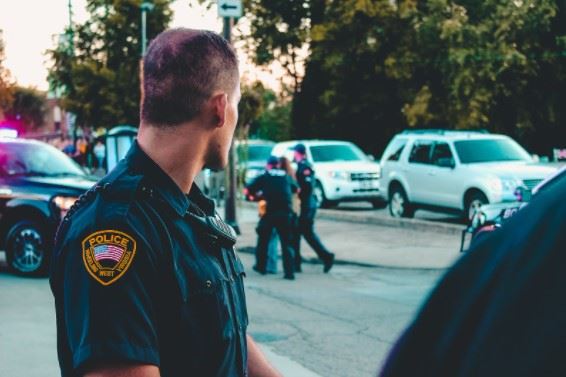What is a Car Accident Police Report?
Following a car accident, at least one police officer should arrive at the scene. It is their responsibility to not only assist injury victims in the aftermath of a collision, but also to file a report of the events. A car accident police report provides an account of how the collision occurred, who was involved, and other details that will aid in the investigation of the case later in the claims process.
Is a Police Report the Same As an Accident Report?
The biggest difference between these terms is that a police report can refer to any incident report filed by a police officer (this could include anything from a routine traffic stop to a domestic disturbance report). A traffic crash report (or an accident report) is a type of report filed by law enforcement filed after a traffic accident.
The police report is a comprehensive, third-party account of a car accident. Ideally, each driver will be able to rely on a police report to use as evidence in their collision claim.
What Is Included in an Accident Report?
In general, a police report on a motor vehicle collision will include:
- Drivers’ names, addresses, and phone numbers
- Passengers’ contact information
- Witness’s contact information
- Drivers’ insurance information
- Event accounts from all involved parties
- Time and date of the accident
- Accident location
- Vehicle damage descriptions (may include diagrams and photographs)
- Injury descriptions
- Traffic law violations that were committed, and information on any action the police officer took (issuing tickets, administering a breathalyzer test, etc.)
- Information on outside variables such as weather and road conditions
- Potential causes of the accident
- Identification of a liable party
 How Important is a Police Report In a Car Accident?
How Important is a Police Report In a Car Accident?
Police reports can be extremely helpful in providing concrete evidence when filing a personal injury lawsuit. For example, they can provide a detailed description of the time, date, and circumstance of the accident. They can also provide official documentation of the victim's injuries.
Having an accident report can help lend credibility to the claims that you are making to the insurance company regarding fault, injuries, and property damage.
Do Insurance Companies Use Police Reports?
Yes. Oftentimes insurance adjusters will refer to police reports when determining whether or not you have grounds for a claim. While there may be times where the adjuster may disagree with the officer's assessment of the situation, this is rare, and oftentimes in a court of law the jury will take the side of the police officer since they were at the scene of the accident.
Can You File an Insurance Claim Without a Police Report?
If an officer failed to show up to your accident to take a report, the responsibility may fall on you to file the report yourself. You can do this by contacting the Illinois State Police and providing them with the details of your accident. Be sure to collect as much information at the scene of the accident as possible (including the other driver's contact and insurance information). You should also take photos of the accident and your injuries to help back up your claims.
While you are not required to submit an accident report when filing a car accident claim, failing to submit a report to the insurance company may detract from the reliability of your claim. The adjuster may question whether or not the damages you're describing really happened or if they were really as bad as you say they are.
What isn’t Included in a Police Report? — Additional Evidence You Will Need
Although a quality police report will have a lot of information on the accident itself, it often does not describe how the accident affected the involved parties. Aside from initial descriptions of injuries and vehicle damage, the police report will not exhibit the true impact of a collision. You will need to retain medical documentation of your injuries and treatment to show the specific conditions that resulted from the collision, and how it has impacted your health and finances. You should also keep all other financial records that show the financial effects of the accident’s aftermath. With these pieces of evidence and the accident report, you can build a case for recovering compensation.
McHargue & Jones, LLC can help you recover compensation if you were injured in a car accident. Send us a message or call (312) 739-0000 for a free case evaluation from our lawyers.


